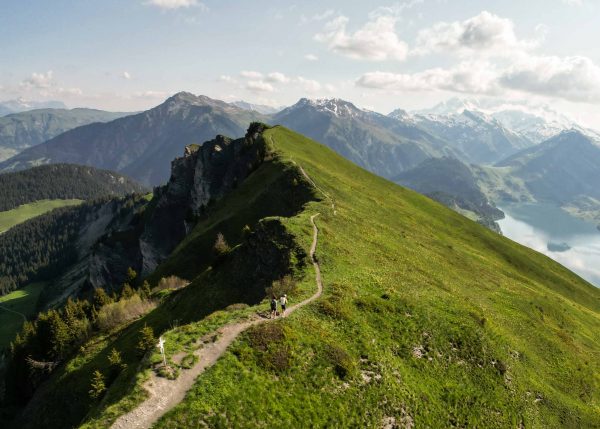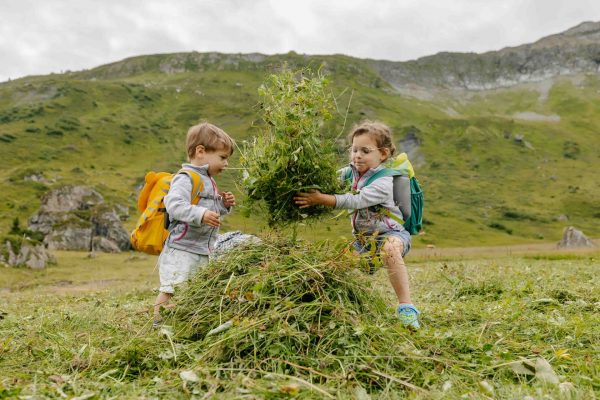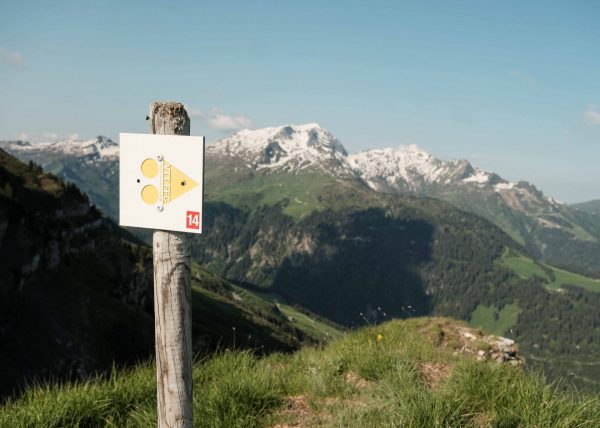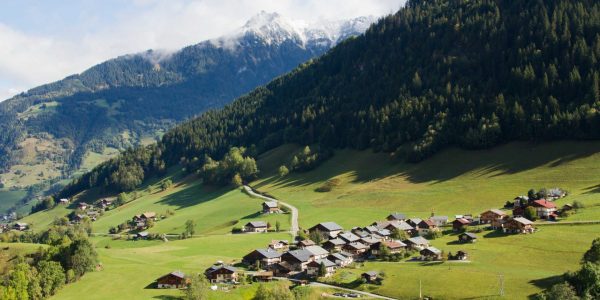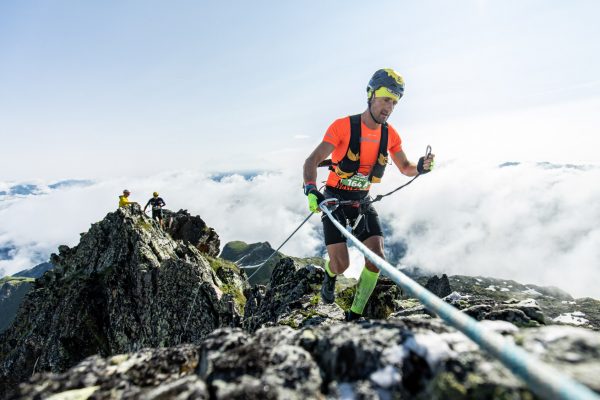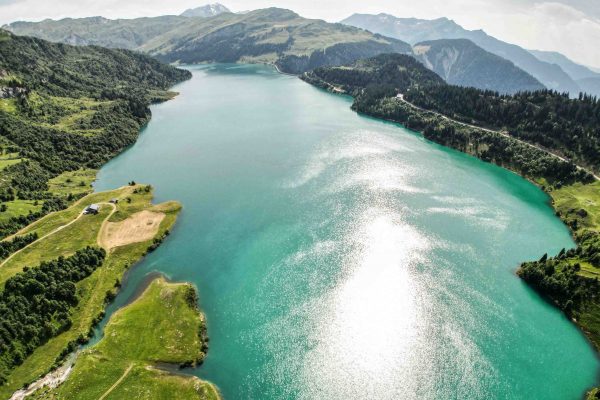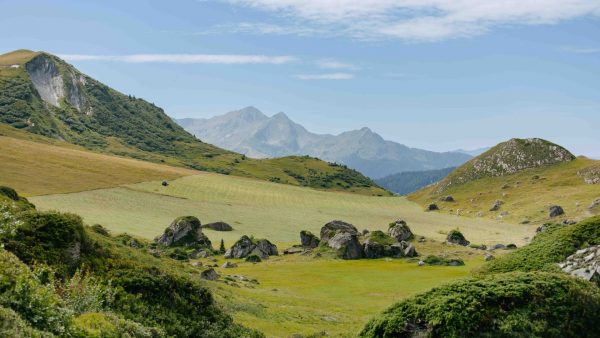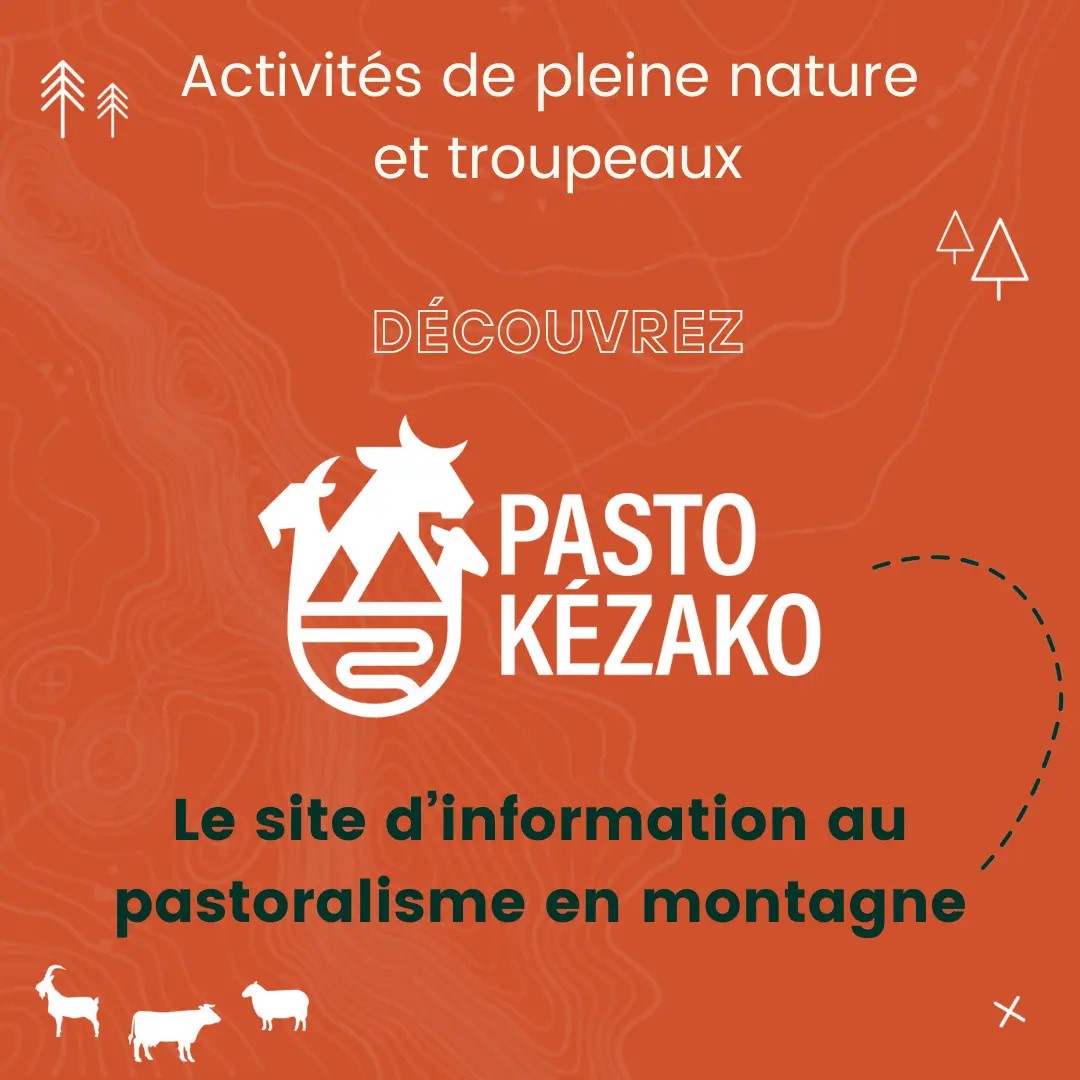The coexistence between outdoor activities, agro-pastoralism and the environment is a major issue in the territory of Arêches-Beaufort. The aim is to preserve the tranquility of the herds and wildlife, to protect the fragile biodiversity of mountain environments, to respect the regulations in terms of bivouacs and wild camping, as well as to promote harmonious cohabitation between the practitioners of outdoor activities and agricultural activities
Practice an outdoor activity in a respectful manner
The charm of Beaufortain and its preserved nature, an infinite, varied playground set in majestic sites experiencing growing success. A dynamic and living agricultural territory, fragile ecosystems subject to strong climatic and human pressures. All this has encouraged the municipality of Beaufort to create a legal framework, so that the different users of the mountain can co-exist while respecting traditional activities and sites where outdoor activities are developed.
When you practice an outdoor activity in a mountain environment, it is essential to adopt good practices that respect the environment and preserve the beauty of the landscapes. Here are a few tips :
1. Stay on marked trails and routes

During your hikes or other activities, be sure to stay on the marked trails and not to take unauthorized paths. This preserves the local flora and fauna, while avoiding the erosion of fragile soils.
2. Obligations in terms of bivouac and wild camping
Legal note: According to the legal definition, the bivouac corresponds to the temporary installation of a camp in a space far from any infrastructure, generally for one night, from sunset to sunrise. Wild camping, on the other hand, refers to a camp set up in the middle of nature, without development, for a period of one day or more. Local regulations may vary, so it is essential to comply with the rules in place in the municipality.

Bivouacs and wild camping in the mountains are subject to specific obligations.
According to the regulations in force, wild camping is strictly prohibited throughout the territory of the municipality, unless explicit permission is obtained from the owner or operator of the land concerned.
As to bivouac, it is usually tolerated, with the exception of areas located around lakes, hydroelectric reservoirs and natural water bodies within a perimeter of 100 meters around these. It is essential to respect these restrictions to preserve the fragility of ecosystems.
Whatever your practice, it is imperative to leave the premises in an irreproachable state at the time of your departure. This means taking all your rubbish with you and taking care not to leave any traces behind. This individual responsibility contributes to preserving the natural beauty of mountain sites and guarantees respect for the environment for future generations.
3. Keep your trash with you and recycle it
One of the fundamental principles is to leave nature as you found it. Leave no trash behind and take everything with you, including organic waste. Be sure to recycle them properly when possible.

4. Be discreet and respectful of wildlife
When encountering wildlife, keep your distance and avoid disturbing them. Do not feed them, scare them or disturb their natural habitats. Be observant, but always respectful.
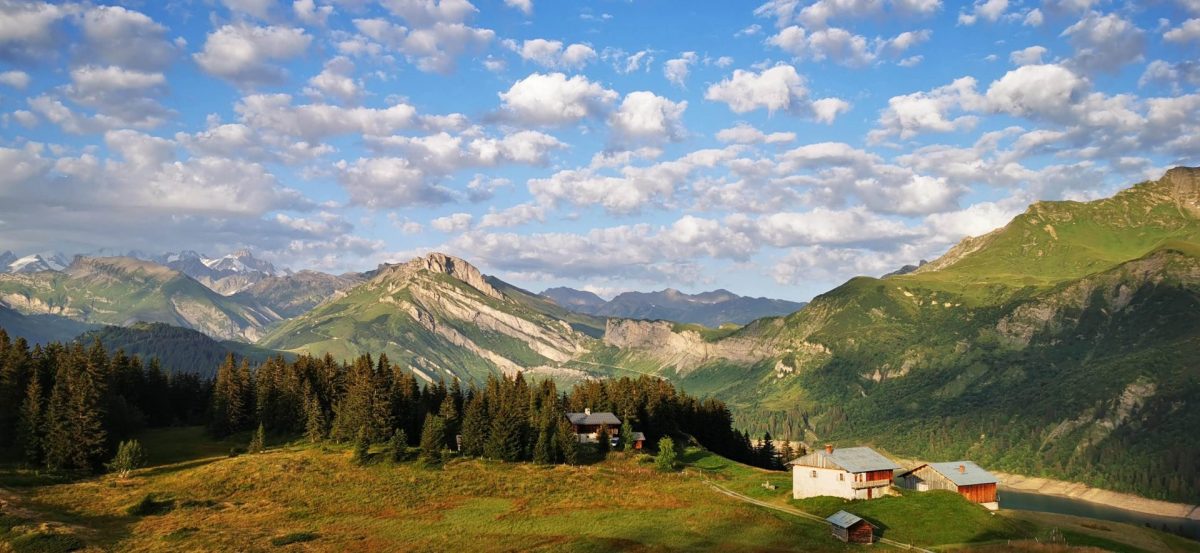
5. Prohibition of campfires and activities that may cause fires
Campfires can be dangerous in the mountains. Respect the prohibitions and avoid lighting open fires. Use portable stoves for cooking instead. Be careful when using flammable material and extinguish it properly.
6. Ban on bathing in lakes and natural bodies of water

For the sake of preserving biodiversity, it is forbidden to bathe in lakes and natural bodies of water in the mountains. This measure aims to prevent the resuspension of mud from the bottom of the lakes, which takes a long time to settle again. As a result, the water loses its clarity and the environment suffocates, leading to an irremediable loss of biodiversity.
Additionally, swimming can also introduce unwanted substances into the water, such as chemicals found in sunscreens or body care products. These substances can have a negative impact on the quality of water and the organisms that live in it.
By respecting this bathing ban, you are helping to preserve the clarity and quality of the water in lakes and natural bodies of water in the mountains. You thus actively participate in the preservation of biodiversity and the safeguarding of the fragile ecosystems that depend on these aquatic environments.
Living harmoniously with agro-pastoral activities
In the mountain environment, it is also important to respect the agro-pastoral activities which are an important part of local life. Here's how to live together harmoniously:
1. Obligation to keep dogs on a leash in the mountains

It is imperative to keep your dogs on a leash when moving in a mountain environment, whether on hiking trails or during outdoor activities. This measure aims to preserve the tranquility of wildlife and to guarantee the safety of the herds present in these areas.
Indeed, the mountains are often home to herds of sheep, cattle or goats which play an essential role in maintaining the ecological balance of these territories. Herd protection dogs are often used by farmers to ensure the safety of their animals against predators. The presence of stray or unleashed dogs can disrupt the work of these guard dogs and endanger the herds. It is therefore essential to respect this obligation in order to prevent any incident that may occur between the dogs and the herds.
Moreover, by keeping your dogs on a leash, you also help to preserve the tranquility of the wildlife present in the mountain environment. Sudden noises and movements caused by loose dogs can frighten wild animals, disrupting their habits and quietude.
Please note: 3 areas are completely forbidden to dogs, even on a leash: The Col de la Louze, Roche Plane, and La Montagne d’Outray.
2. Be careful when parking and obey traffic rules
When you park your vehicle, be sure to do so in dedicated areas so as not to interfere with the work of breeders and the movement of herds. Follow the directions and leave a 4-meter travel lane to ensure smooth travel. Respect the travel bans on certain forest roads or alpine roads, they are not all authorized for parking and driving. It is sometimes difficult to move around with agricultural or forestry machinery when parking is uncontrolled. These tracks are also used for moving herds and a poorly placed vehicle can disrupt this. It is important to respect the proper functioning of our agricultural and forestry operations.
3. Find out about local rules and sensitive periods
Find out about region-specific rules. Do not hesitate to contact the Tourist Office who will be able to give you all the necessary information so that you can practice your activity in complete peace of mind.
By following these best practices and respecting agro-pastoral activities, you will be able to take full advantage of your outdoor activities in a mountain environment while preserving the environment.
Elet's get involved in this process together and be agents of change for a world more respectful of nature and its balance.
Hiking, mountain biking, trail running... practicing all these activities responsibly means knowing how to share the mountain with the herds. Here are the keys to understanding how pastures work and adopting good practices!


